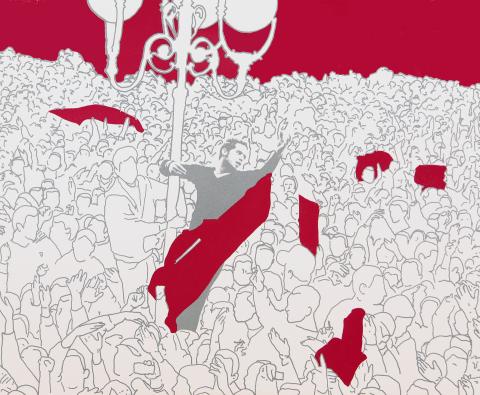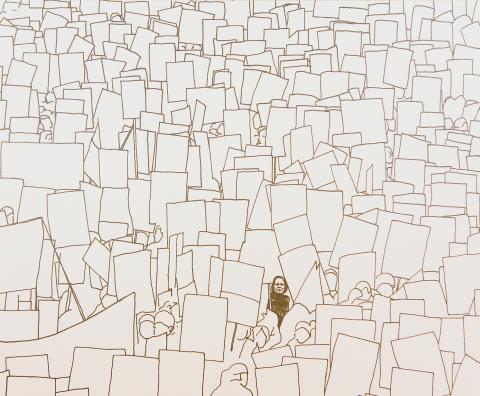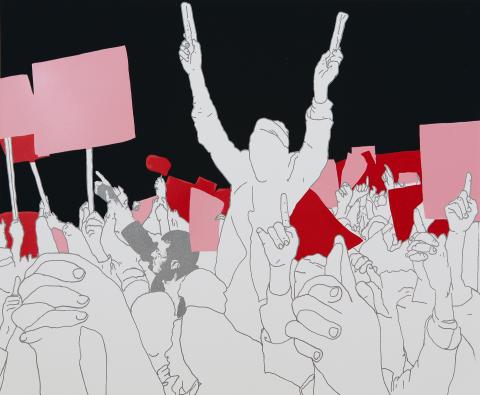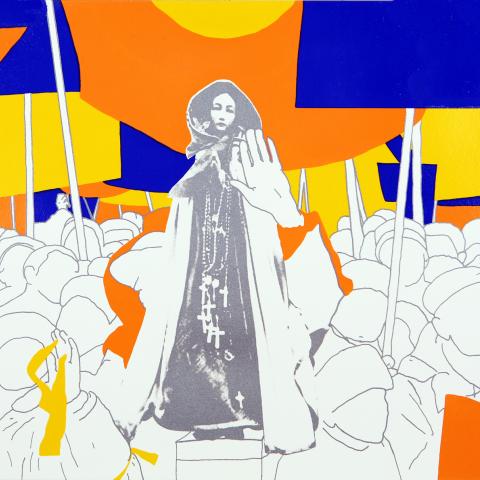On view January 26 - Feb 20, 2023

Tunisia

Iraq

Yemen
Occupy Wall Street was in the air and the revolutions and protest in the Middle East were still happening and Libya had finally gotten rid of Gaddafi. In Vietnam the young people were learning how to protest again and to make their voices heard. I spent time that weekend browsing around on the Internet and became intrigued by how each revolution had been assigned a name and a color. There was the Orange Revolution in Ukraine, the Green Revolution in Iran, the Pink Revolution in Yemen, the Red Revolution in Thailand, and the Saffron Revolution in Burma. It was interesting to see how the use of a single color gave such a collective sense to each movement. But I also kept asking myself: Who are the people in the crowd? Whom do I look for that I can connect to somehow? When you look at a crowd, you always look for the one person whom you connect to1.
Dinh Q. Lê was invited to the LeRoy Neiman Center for Print Studies at the School of the Arts at Columbia University in 2011 to collaborate with Gregory Santos on an edition of prints inspired by the September 2011 Occupy Wall Street movement along with other concurrent international protest movements. The result is Fragile Springs, a portfolio of 10 screenprints with varnish all on view at the Museum of Art. The portfolio was purchased in 2021 by Museum of Art for the Permanent Collection.
Ten countries are the subjects of Fragile Springs: Burma, Iran, Iraq, Libya, Thailand, Tibet, Tunisia, Ukraine, Vietnam, and Yemen.
Dinh Q. Lê’s work and art practice revolve around the themes of identity, history, and memory, which span various mediums from his well-known woven photographs and tapestries to handmade paper, and video and mixedmedia installations that question the reception and consumption of images and how visual culture may inform a national identity. Lê and his family left Vietnam in 1978 and lived in refugee camps in Thailand before relocating to the United States. In California where he lived and went to art school, Lê was sparked by the prevailing perceptions of the Vietnam War and its lingering consequences on the Vietnamese people.2
This exhibition is on view in collaboration with the Global Racial and Social Inequality Lab (GRSIL) at the University of New Hampshire. GRSIL is envisioned as a dynamic site of research, pedagogical activity, and community engagement.
Collaborate
Would you like to bring your class to explore Fragile Springs? Contact Education and Outreach Manager Molly Bolick to discuss experiential learning opportunities that can support your curriculum.
